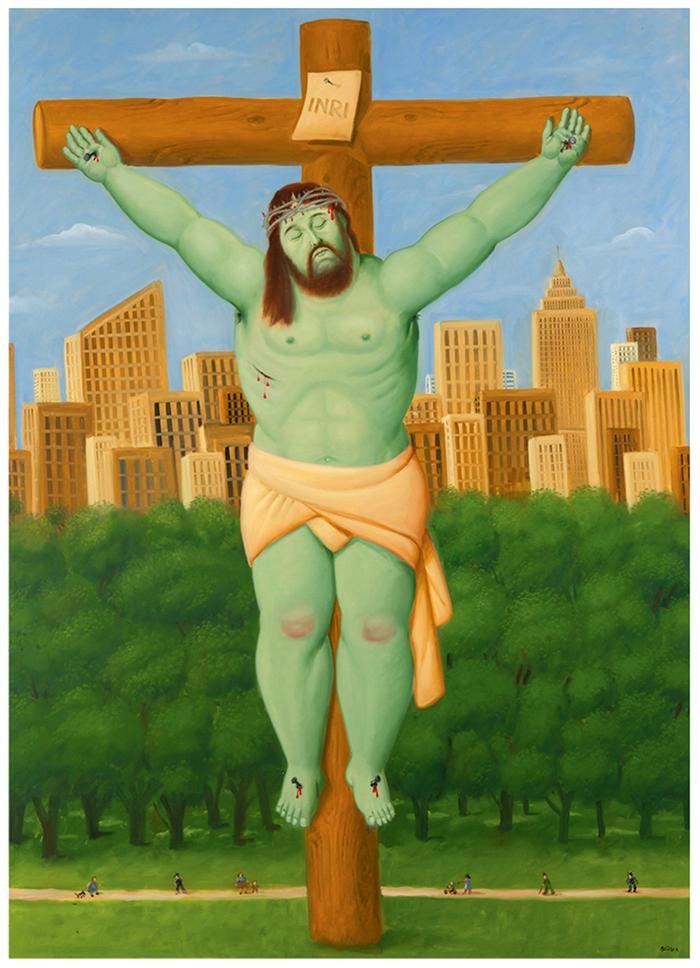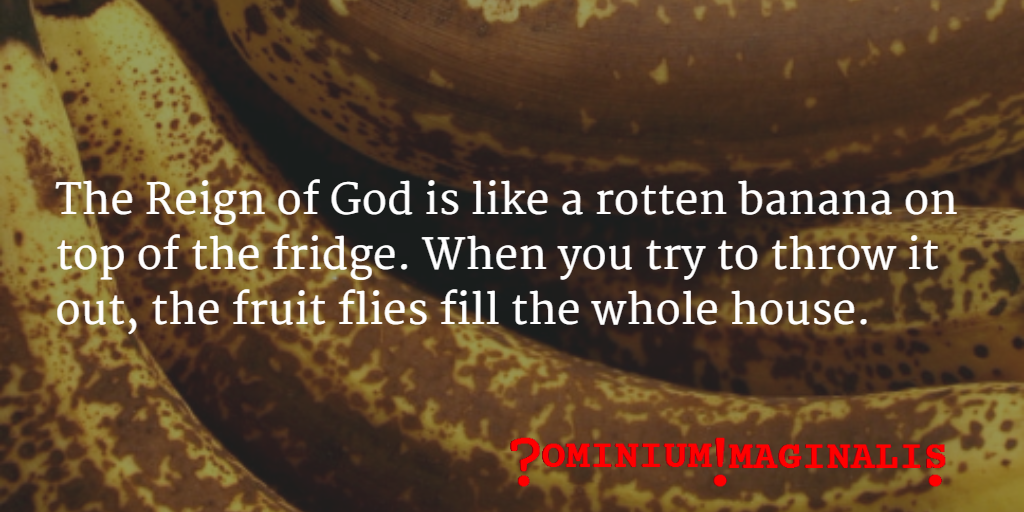|
Give this album a listen and you'll hear a sixteen-year-old kid named Emily Bindiger singing her heart out. She's got a big talented voice for someone so young, and it's obvious that the record producers were trying to play this up when they stood her next to a big old Penny Farthing bicycle for the album cover photo. But there's more than that in here, hinted at by the imagery of the little girl all in white standing in the dark woods. Emily Bindiger sings her heart out, but it's what she's singing that really draws me in.
The album has been described as Christian Psych - a subgenre of music coming out of the Psych / Acid Rock / Folk music of the 60s and 70s. But if it is Christian Psych, it's certainly an outlier. Bindiger was a student at NYC's High School of Performing Arts when she auditioned for and got a role in an international show in Paris, France in 1971. She dropped out of school and moved to Paris and brought along with her the folk songs she had been writing and performing in Greenwich Village clubs. A French record producer, hearing her perform, then teamed Emily up in the studio with the newly signed band, Dynastie Crisis, who were a short-lived but hugely influential French band. They played Pop / Rock with tons of versatility and Psych was one the kinds of music they knew how to make.
Not all of Bindiger's songs are explicitly Christian. In fact, even the Christian songs aren't what you would expect - there's no praise or worship music here, and no toeing the doctrinal line - instead these songs, written by a kid, struggle in a very mature way with questions of faith - redemption, forgiveness, the coming of age into disillusionment. Bindiger doesn't shy away from the hard stuff. The album's first track "Confession" opens with the lyrics: "Father, Father, how I have sinned. Father, you know where I've been. My eyes are burning and I'm losing my mind. Father, Father, please be kind." With french horn and flutes playing along, the song becomes a sort of bold mix of prayer and confusion, confession and folk journey. The next song, "Sunflower Seeds," bounces along like a country-pop crossover. It's short and sweet, but the lyrics are about sunflower seeds that aren't growing and are in danger of being lost in the change of the seasons. The tension really begins to sprout by the third track, "Jesus Said," in which Bindiger sings about about witnessing sorrow, but also seeing joy, and then telling us that Jesus will love us all and deliver us from pain. In the middle of the song, they bring it down and Bindiger asks frank questions of "the children" and what it is that their elders have had to give up. By this point, you'll begin to realize you're not listening to a teenager trying to teach you rote doctrine or dogma through music. Nor is she trying to overthrow or dismiss religious notions. Instead, standing on the cusp of adulthood, far away from home, with a big band behind her, she's singing out the big questions of faith. These are the kind of questions that exist inside of us more as feelings than as words. The kinds of questions that settle down on us especially at crossroads and initiations, when we realize we must leave something of ourselves behind to move forward and we feel grief even as we rush forward. That's what I hear in this album, and it continues through the next five tracks. Dynastie Crisis does an amazing job putting all this to music - bold and dreamy, orchestral and improvisational. You can buy the rereleased, remastered version on itunes.
0 Comments
As a Christian pastor, I find that for many people in church Jesus and salvation can cause a lot of anxiety.
Many of the churchgoers I know prefer to think of God as God and not get Jesus mixed up in it. There are a lot of reasons that this happens. One of the big ones is the notion that Jesus is the Christian gatekeeper to heaven and salvation. This theology, popular among most fundamentalists and evangelicals, is that if you don't "believe in" Jesus in exactly the way they interpret that you must, then you're bound for hell and eternal damnation. People get terribly afraid that if they let Jesus into their hearts and begin to follow Christ, that they too will have to stand guard at the Heavenly Gate, bar the doors, and toss out the riffraff. I have often heard church folks say things like, "What about my Jewish friends? If they don't believe in Jesus, are they going to hell? Jesus just seems so exclusive. God includes us all. I think I'm Unitarian!" Well, there's nothing wrong with being Unitarian, and seeing that the United Church of Christ has many congregations which belong to both the United Church of Christ and the Unitarian Universalist Association, I think it's safe to say that it's OK to explore unitarianism in a UCC congregation. We'll just also explore trinitarianism and try to imagine Jesus as the Christ, the Son of God, fully human and fully divine, crucified and resurrected. I love reading about Jesus' miracles in the Gospels. People aren't coming to Jesus because they believe that Jesus is the guardian to the gate Heaven that they must appease. They're not coming to Jesus because they believe that he's fully divine. They're not even coming to him necessarily believing that Jesus is the Messiah. Instead, people come to Jesus simply believing that he has the ability to heal them and the ones they love. And when they have received healing, Jesus tells them that it is their faith that has healed them. What if we allowed ourselves to meet Jesus the same way? What if we sought out what Jesus has to offer? And what if we listened to what Jesus had to say about it, letting go of the expectation that we must first determine who Jesus is? Come to meet Jesus first. You may meet Jesus in prayer or in worship. You may meet Jesus in good work or good art. You may meet Jesus in broad community or in an intense relationship with one other person. You may meet Jesus in devotional writing or in scholarly works. You may find yourself agreeing with Jesus. You may find yourself arguing Jesus. You may find yourself falling in love with Jesus. Falling for Jesus doesn't mean that you'll be asked to damn the world, in my experience. Instead, falling for Jesus will mean that you'll be asked to heal the world. What if Jesus was a universally offered entryway into loving God and neighbor more fully, rather than the bouncer at the one door to heaven? Following on the post What is God, I offer below a section of my ordination paper on Jesus - my Christology and soteriology. It seems relevant to all of this and I keep coming back to it to remind me of my faith and my commitments.
For me, as a Christian, Jesus is a tangible access point into the great Mystery. Jesus has saved me by showing me the Way. His is the way of the servant. He does not sit at the table, but he serves the table. He knocks at the door and asks leave to enter. He washes feet. He eats with tax collectors, prostitutes, and sinners. He dwells with, organizes, heals, and empowers the last, the least, and the lost. I believe that all those who choose to engage Jesus’ message and walk his way, at any level, enter into relationship with the Resurrected Christ, who listens, learns, adapts, and continually offers “living water” – new possibilities for relationship, transformation, and liberation – to those who seek it.
Jesus preached the coming of the Reign of God. The Way to the Reign of God was through the low, the small, the poor, and the meek. Jesus said that the Reign of God is like yeast (a fungus). A few scrapings of yeast off wheat spoiled in storage could leaven 60 pounds of flour. It is like the tiniest mustard seed which dropped in a field becomes a great tree that takes the field away and gives it to the birds. It is the blessing, the possession, and the banquet feast of the poor. Jesus proclaimed that the Reign of God is at hand while also living a life of action as a servant, organizer, rabbi, and healer. If we are to be followers of Jesus, we must be people of the Reign. People of the Reign are invited to take faith that the Reign of God is already here within and among us while also acting upon the faith that the Reign of God has not yet arrived and must be worked for! When Jesus says the Reign of God is “at hand” it suggests this tension of Here! and Not Yet! The Reign of God is imminent – about to happen – and immanent – here already amongst us and everywhere. Jesus models for us the Way – to live as if the Reign of God is already here as we work to usher it in through service to God and neighbor. Jesus has saved me by offering me the Way. Jesus has saved me through his life. Jesus’ death also has a great deal of meaning, as his death is intimately linked to the way he lived his life and the way in which he worked for the Reign of God. Jesus was crucified for standing up to the greatest political, religious, and economic forces of his time. He flipped the tables of Temple money changers, healed on the Sabbath, and rode into Jerusalem on a donkey in joyful mockery of Roman parades and imperialism. Jesus understood that in order to bring good news to the poor, to proclaim release to the captives, and to let the oppressed go free he had to commit himself totally to the Reign of God and stand up against the idolatry, injustice, hypocrisy, and selfish power at work in the world. Jesus knew it was a risky commitment and, indeed, Rome crucified him for it. Jesus lived and taught love. He even died with love and remembered love from the cross. My faith tells me that Jesus’ love which flowed out of his whole life and death was healing to the world. His love continues to heal the world today. Great love and great sacrifice can mend tears in the fabric of human life and history – they can reverse the pain and power of violence, oppression, and hatred. Jesus’ life, death, and resurrection could be said to atone for the sins of the world in this way – through the outpouring of selfless love and committed service to others that flowed through Jesus throughout the course of his life, even unto death, and beyond the grave into his resurrected glory. All of us who follow Jesus as people of the Reign and participate in his love and work continue with the Resurrected Christ the process of mending and healing the world today.
This week I started making my own kefir - a fermented milk drink. Dropping the kefir grains into the milk and watching them transform it into something else over the course of the day, then straining the grains out and drinking the brew has gotten me thinking about the Reign of God... and milk.
A strange sort of miracle happened with yesterday's sermon. I actually liked it. I'm not sure how that happened. Usually, I'm terrified of my sermons after I preach them. But Sunday evening I found I actually wanted to listen to the recording. In four years of sermoning, I've never wanted to listen to a sermon EVER. And I have never listened to one on Sunday evening, let alone with delight.
Maybe it's because I really don't feel very responsible for this one. It came and found me. On Saturday night I had already written a sermon for Sunday, but at 7 PM - after I'd already put away a nice relaxing beer - the Holy Spirit downloaded this one into me. It was all right there. Boom. Impossible to be ignored. I wrote the whole thing down in maybe three hours, which is the least amount of time I've ever spent writing a sermon. Working hard is important. And developing our skills and character in order that we will be able to offer our best gifts is important. But it is such a relief to remember that it's not always all on us. In creative endeavors I experience this Grace most powerfully. I set an intention to make something, I put in the work, but the final result is often something that was beyond my original imagining.
Manuscript is below...
|
Jesus the ImaginationThoughts and dreams, musings and meditations Archives
June 2024
Categories
All
|





 RSS Feed
RSS Feed